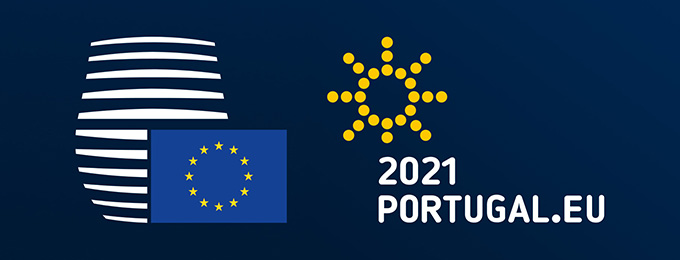The new Presidency will focus on the last steps needed to set up the new EU programmes and on promoting recovery and resilience in the face of the pandemic.
Portugal took over the Presidency of the Council of the EU from Germany on 1 January for the first half of 2021. With this, the second country in the current Trio Presidency group, including also Slovenia, is now in charge. After the important breakthroughs on the multiannual financial framework (MFF) 2021-2027 and on the new generation of EU programmes in December 2020 (see SwissCore article), important work still awaits. Thus, the Portuguese Presidency will be busy with finalising legislative files, including for Horizon Europe, Erasmus+ and the Digital Europe Programme. It is planned that the legal basis of the new EU programmes will be formally approved by the European Parliament (EP) and the Council in early spring. As the trilogue negotiations between the Council, the EP and the European Commission (EC) already reached provisional political agreements back in December, it is expected that there will be no surprises and that the legislative process will be concluded smoothly. Also the work on the association of third countries to the new programmes will start under the Portuguese Presidency and the Council will be involved in preparing and concluding the negotiations.
Apart of the legislative phase that still needs to be finalised in order that the next generation of programmes can retroactively start on 1 January, the preparatory work towards implementing them is also moving on. For Horizon Europe, the Strategic Plan will have to be finalised and most work programmes are expected to take shape until April. Other important elements of the new research and innovation (R&I) framework programme, like the European Partnerships, will have to be set up. In the case of the institutionalised partnerships, it is expected that the legal basis will only be adopted in late 2021, during Slovenia’s Presidency. The new instrument of “Missions” will start in spring with a preparatory phase, but will still have to be better defined. The EC announced to present more details in a Communication on Missions, currently foreseen for May 2021. The Portuguese Presidency plans an event on 2 February to launch Horizon Europe, which will be live-streamed.
The Portuguese Presidency will also focus on the development of the New European Research Area (ERA) and the European Education Area (EEA). A special emphasis will be laid on improving brain circulation and research careers, topics that will be addressed in Council Conclusions. Also, the governance structure of the New ERA as foreseen in the EC’s Communication and in the Council Conclusions will have to be set up (see SwissCore article). It is an objective of the Council and the EC to bring the ERA and the EEA closer together. An important part of this work will be the development of the Higher Education Transformation Agenda, where the EC will consult with the interested education, research and innovation community over the coming months.
A main focus of the Portuguese Presidency programme is promoting recovery and resilience in the face of the coronavirus crisis. Other priorities include the support of the EU’s strategic priorities of the European Green Deal and the digital transformation. Furthermore, Portugal intends to strengthen the European social model and to promote a Europe that is open to the world. The Next Generation EU (NGEU) recovery instrument will be crucial for these efforts. However, in order that the €750 billion (2018 prices) instrument can be implemented, national parliaments need to approve raising the EU’s Own Resources. A key element of the NGEU is the development and implementation of national recovery and resilience plans, which will have to include reforms to help achieve a green and a digital recovery from the pandemic and to make European economies and societies more resilient to future shocks. Portugal will also focus on defending Europe’s autonomy by developing an industrial strategy, which promotes European value chains, and will pay particular attention to strengthening small and medium-sized enterprises.
Still in the last days of 2020, in late December, the EU and the UK found common ground on a Trade and Cooperation Agreement, which includes provisions on the UK’s association to several EU R&I programmes: Horizon Europe, the Euratom Research and Training programme, the International Thermonuclear Experimental Reactor (ITER), and Copernicus. The UK will, however, not associate to the Erasmus+ programme. Instead, a new national scheme, the Turing programme will be set up. The EU and the UK strive to assure UK participation from the beginning of the new programmes. However, formal association to Horizon Europe can only start after the respective regulation will be adopted on the EU side. The provisions of the UK’s participation in EU programmes will have to be finalised by a Specialised Committee on Participation in EU Programmes once the respective legal basis on the EU side is adopted.
The UK will be able to participate in the entire Horizon Europe programme, with the exception of the equity fund of the European Innovation Council’s Accelerator. UK representatives will also be able to participate as observers in the Horizon Europe committees as well as in the European Research Area and Innovation Committee (ERAC). The UK’s financial contributions to Horizon Europe will be GDP based. Furthermore, a participation fee of 4% will be added. In case UK applicants would perform very well in Horizon Europe over the period of two consecutive years, the UK would have to top up its contribution. As already agreed under the Withdrawal Agreement, UK participants in Horizon 2020 projects will continue to receive EU grant funding for the lifetime of their projects and are also able to participate in the European Green Deal Call under H2020.

